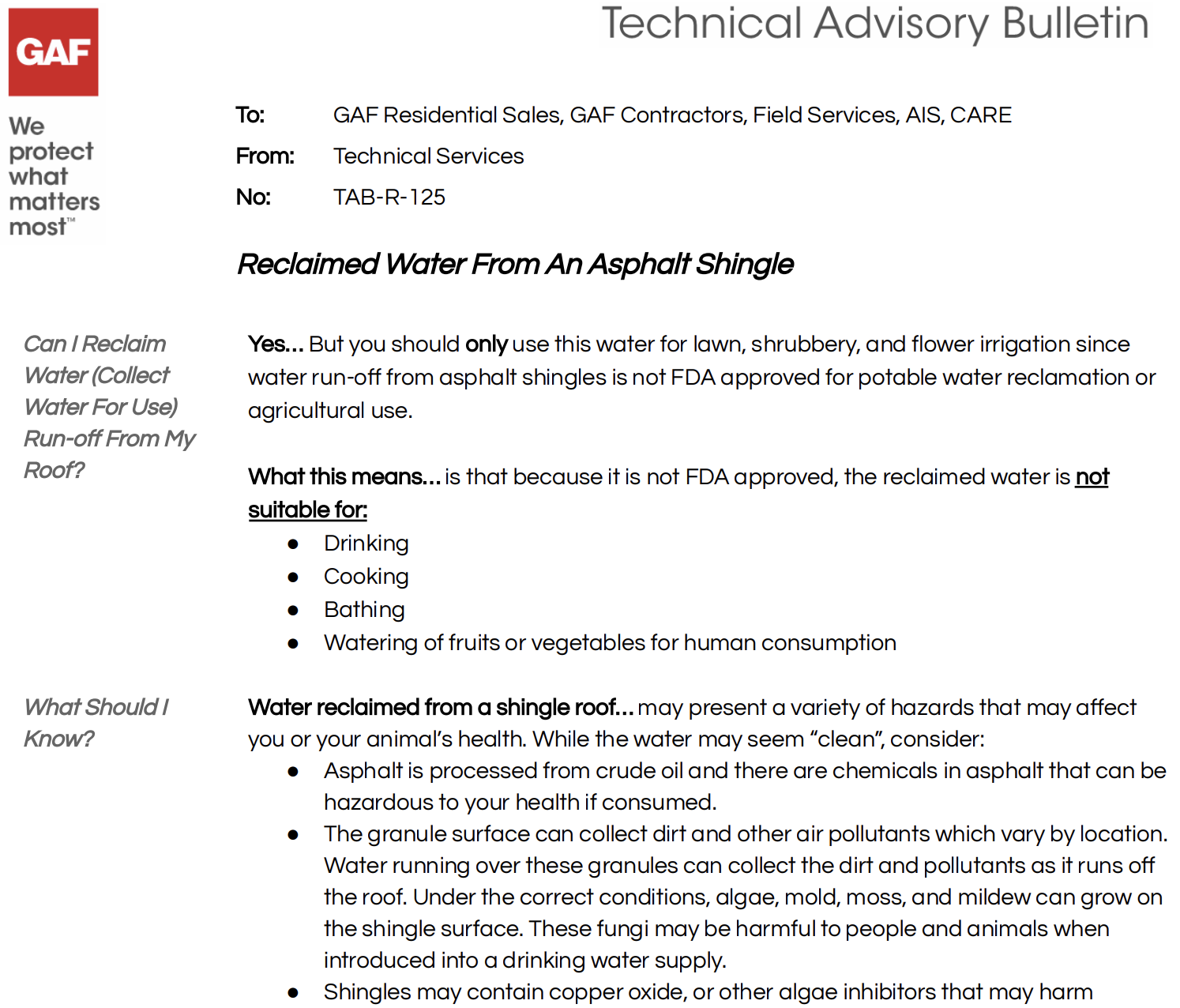Can I Reclaim Water (Collect Water for Use) Run-off from My Roof?
Yes, you can reclaim water run-off from your roof, but it should only be used for lawn, shrubbery, and flower irrigation. Water run-off from asphalt shingles is not FDA approved for potable water reclamation or agricultural use.
What This Means
Because reclaimed water from asphalt shingles is not FDA approved, it is not suitable for:
- Drinking
- Cooking
- Bathing
- Watering of fruits or vegetables for human consumption
What Should I Know?
Water reclaimed from a shingle roof may present various hazards that can affect your health or your animal’s health. Although the water may seem clean, there are several considerations to keep in mind:
- Chemical Contamination:
- Asphalt is processed from crude oil and contains chemicals that can be hazardous to health if consumed.
- Pollutant Accumulation:
- The granule surface of shingles can collect dirt and other air pollutants, which vary by location. Water running over these granules can pick up dirt and pollutants, making it unsafe for drinking or cooking.
- Fungal Growth:
- Under the right conditions, algae, mold, moss, and mildew can grow on the shingle surface. These fungi may be harmful to people and animals if introduced into a drinking water supply.
- Algae Inhibitors:
- Shingles may contain copper oxide or other algae inhibitors, which can harm aquatic life if the reclaimed water is used in ponds or streams.
Conclusion
While reclaimed water from asphalt shingle roofs can be a resource for irrigation, it is important to understand the limitations and potential hazards. Always use this water for non-consumable purposes to ensure safety.
For Immediate Service or Consultation
Contact Allied Emergency Services, INC.
Phone: 1-800-792-0212
Email: Info@AlliedEmergencyServices.com
Location: Serving Illinois, Wisconsin, and Indiana with a focus on the greater Chicago area.
If you require immediate assistance or have specific questions, our human support is readily available to help you.
Disclaimer: This article is intended for informational purposes only. For professional advice, consult experts in the field.










